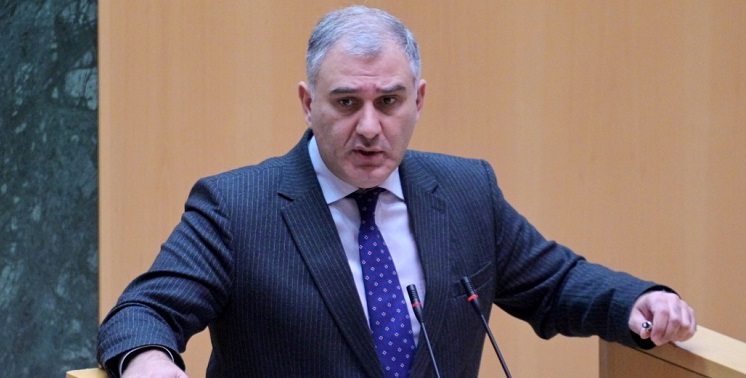Opposition “knows who attempted to hamper” Georgia’s EU candidacy - ruling party MP

Sarjveladze claimed the domestic opposition was “fully aware of the identity of their colleagues” who had attempted to hamper Georgia’s EU candidacy. Photo: Parliament press office
Mikheil Sarjveladze, the Chair of the Human Rights Committee in the Georgian Parliament from the ruling Georgian Dream party, on Wednesday claimed the domestic opposition was “fully aware of [the identity of their colleagues] who had attempted to assure the country’s Western partners not to grant Georgia the European Union membership candidate status” last year.
The lawmaker’s comment came following claims this week by opposition member Mamuka Gamkrelidze, who said unspecified members of the country’s opposition had been engaged in alleged talks with foreign partners to prevent the country from attaining the status in December.
The truth always comes out in the end. The opposition was meticulously concealing its activities, attempting to keep them from public view. Although the Government's public discourse on the opposition's objectives has faced criticism, it is evident to all that this revelation is not something new. The opposition is fully aware of who went [to Western states for lobbying purposes] and the measures they took to hinder the country's progress", he claimed.
Khatuna Samnidze, an opposition MP and the Chair of the Republican Party, was the first to claim in October that “specific representatives” of the opposition were “hindering” the process of Georgia receiving the status.
In her comments to the media, Samnidze noted opposition groups had “intensified” their efforts ahead of the European Council decision [that came on December 14] on whether to grant Georgia the bloc’s candidacy.
In comments that followed Samnidze’s remarks, Khatia Dekanoidze, an opposition MP from the Euro Optimists faction in the Georgian Parliament, confirmed “mixed messages” from domestic opposition groups over the country’s EU status were “causing concerns” among its foreign partners.
 Tweet
Tweet  Share
Share